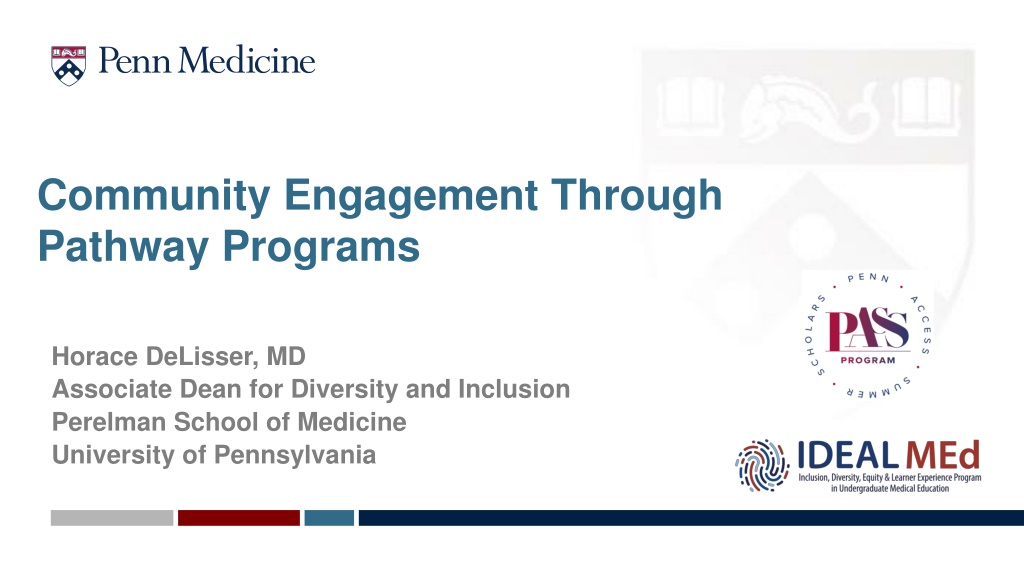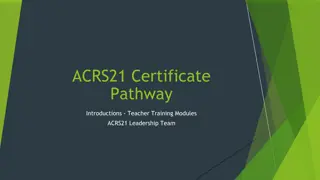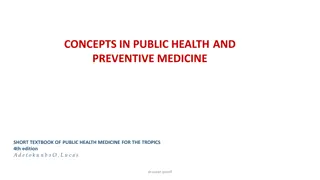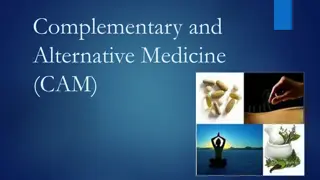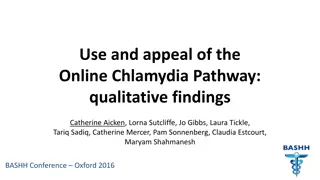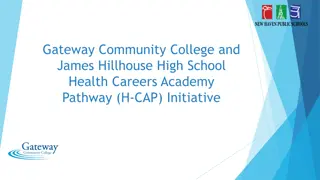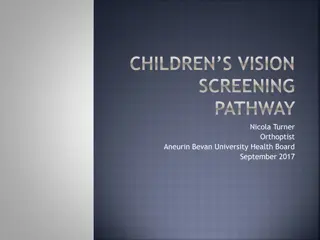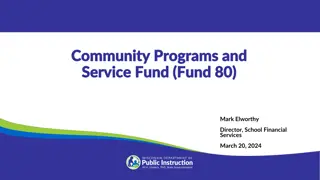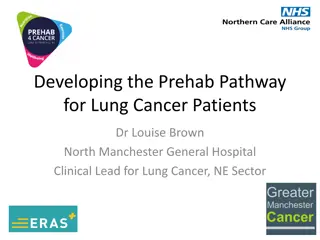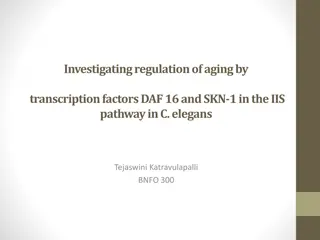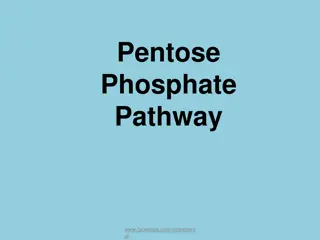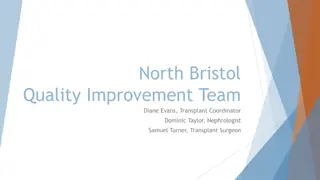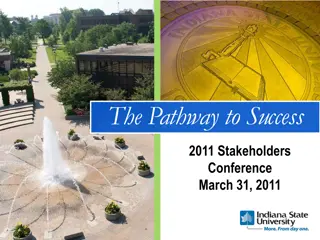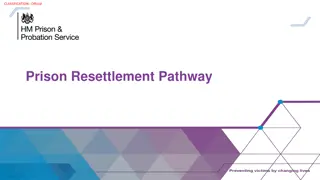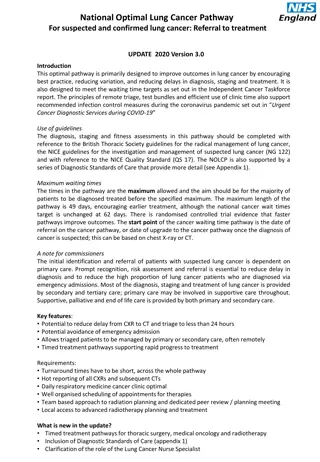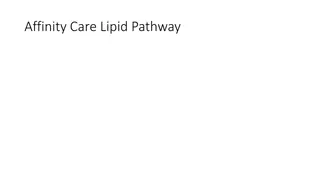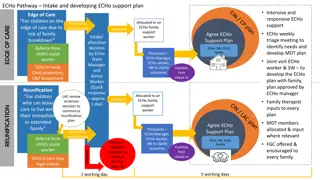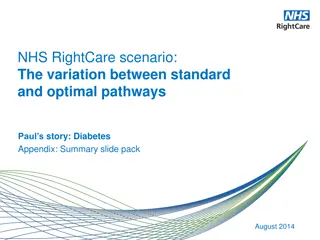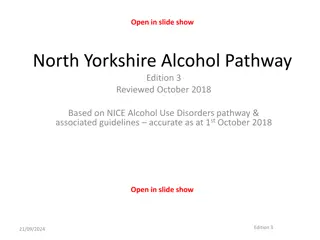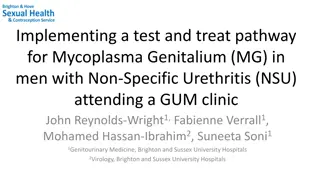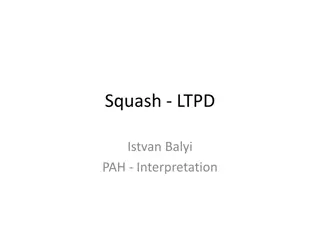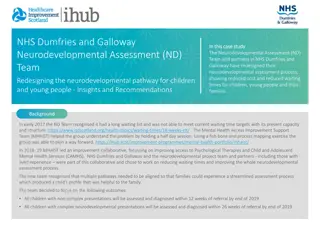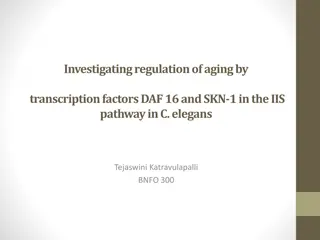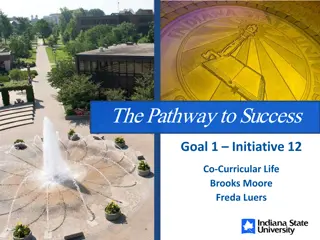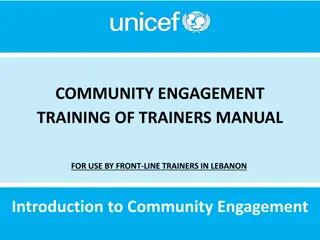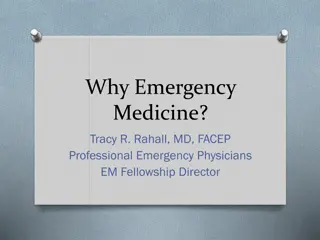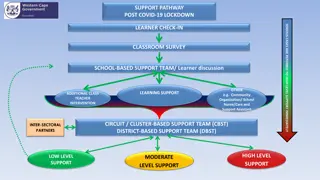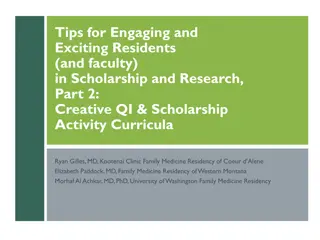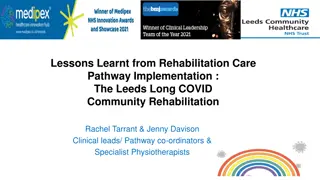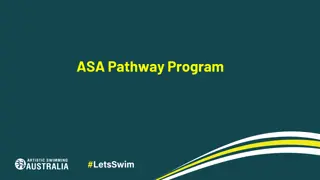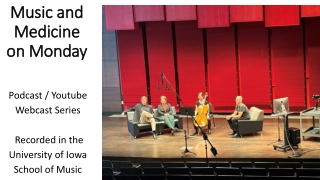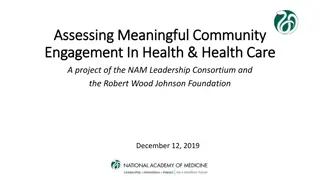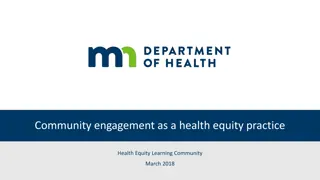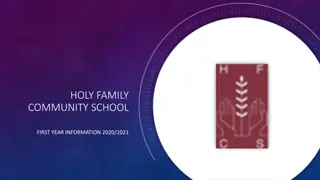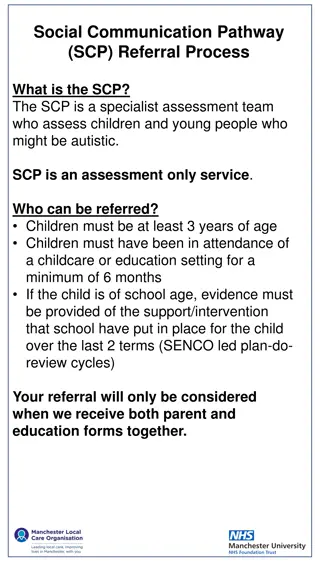Community Engagement Through Pathway Programs at Perelman School of Medicine
Horace DeLisser, MD, discusses the imperative of diversity in healthcare and biomedical science, highlighting the Penn Access Summer Scholars program. The engagement aims to enhance diversity, trust in the healthcare system, and the quality of healthcare. Data on diverse applicants and matriculants to U.S. MD-granting medical schools are also presented.
- Community Engagement
- Pathway Programs
- Diversity in Healthcare
- Biomedical Science
- Perelman School of Medicine
Download Presentation

Please find below an Image/Link to download the presentation.
The content on the website is provided AS IS for your information and personal use only. It may not be sold, licensed, or shared on other websites without obtaining consent from the author. Download presentation by click this link. If you encounter any issues during the download, it is possible that the publisher has removed the file from their server.
E N D
Presentation Transcript
Community Engagement Through Pathway Programs Horace DeLisser, MD Associate Dean for Diversity and Inclusion Perelman School of Medicine University of Pennsylvania
Objectives 1. Defining the imperative of diversity 2. Describe the Penn Access Summer Scholars (PASS) program 3. Grand vision for pathway programs 4. Questions, comments, discussion https://www.med.upenn.edu/idealmed/ 2
Imperative for Diversity in Healthcare 1. Diversity empowers the enterprise of medical education 2. Diversity in the healthcare workforce and administration foster trust in the healthcare system 2. Diversity in the healthcare workforce enhances the quality of healthcare provided and (likely) mitigates health disparities https://www.med.upenn.edu/idealmed/ 3
Imperative for Diversity in Biomedical Science 1. Science thrives when there is diversity of thinking 2. Diversified scientific voices are needed to foster trust, to effectively educate the public and to speak to the policy implications of science 3. Enables the opportunity to experience the rush of creating new knowledge 4. Diversity in science undermines constraining and negative societal stereotypes https://www.med.upenn.edu/idealmed/ 4
Imperative for Diversity in Healthcare Applicants and Matriculants to U.S. MD-Granting Medical Schools by Race/Ethnicity 2023-2024 Race/Ethnicity American Indian or Alaska Native Asian Black or African American Hispanic, Latino, or of Spanish Origin Applicants (%) 90 (< 1) 12,600 (24) 4672 (9) 3177 (6) Matriculants (%) 36 (<1) 5901 (26) 1845 (8) 1493 (6) Native Hawaiian or Other Pacific Islander White Other Total 57 (< 1) 21131 (40) 10850 (21) 52,577 19 (< 1) 9534 (41) 4153 (18) 22,981 660 Black males and 714 Hispanic/Latino males matriculated https://www.aamc.org/data-reports/students-residents/data/2023-facts-applicants-and-matriculants-data https://www.med.upenn.edu/idealmed/ 5
Diversity in Medical Education A richness of student experience that empowers the enterprise of medical education https://www.med.upenn.edu/idealmed/ 6
Overview of PASS 1. Linkage admission program to PSOM for undergraduate students from groups underrepresented/underserved in medicine attending one of 10 partnering institutions Non-HBCUs (4): Bryn Mawr College, Haverford College, University of Pennsylvania, Princeton University HBCUs (5): Howard University, Morehouse College, Oakwood University, Spelman College, Xavier University of Louisiana Research Enrichment Program : STEMMPrep 1 or 2 selected each year from each institution Students who complete the program are eligible to apply for admission to PSOM without the MCAT https://www.med.upenn.edu/idealmed/ 8
Overview of PASS 2. Rigorous selection criteria Each partnering institution identifies in the spring, using holistic review, 3-5 sophomores who are academically strong (SAT >1300; GPA 3.6), from groups underrepresented in medicine or from groups underserved in medicine, with compelling personal qualities and evidence of leadership, initiative and impact Identified students are interviewed by the deans and staff of IDEAL Med at PSOM Executive Committee on Admissions the makes final selections, based on the above and a student s fit for and likelihood of success at PSOM 3. Consists of two consecutive summers (after sophomore and junior years) of mentored research and enrichment experiences on Penn s Campus https://www.med.upenn.edu/idealmed/ 9
Goals of the PASS Summer Program 1. Create a sense of community and cohesion among the cohort of PASS students 2. Foster the mentor/mentee relationship between the PASS student and their supervising research faculty 3. Promote the development of a physician identity and professionalism in the PASS students 4. Expose PASS students to high quality biomedical research as well as develop pertinent research skills 5. Facilitate the students transition into Perelman https://www.med.upenn.edu/idealmed/ 10
Components of the PASS Summer Program 1. An In-Person Research Experience 2. A Program of Enrichment 3. Near-Peer Mentoring 4. Individualized advising and coaching https://www.med.upenn.edu/idealmed/ 11
Research Component of the PASS Summer Program 1. Mentored Research 2. Online Research-related Modules (1st Summer Students) Responsible conduct of research How to read a research article How to create a journal club presentation How to design a research poster How to communicate professionally https://www.med.upenn.edu/idealmed/ 12
Research Component of the PASS Summer Program 3. Research Presentations Mentor and their research (week 2) Journal club presentation (weeks 5 & 6) Research presentation (week 8) 4. Weekly 1-on-1 meetings with research mentor 5. Participation in lab/research related meetings, journal clubs and conferences as possible https://www.med.upenn.edu/idealmed/ 13
Enrichment Component of the PASS Summer Program 1. Podcast Discussions 2. Physician Career Narratives 3. Virtual Clinical Encounters 4. Didactics 5. Book Club Discussions 6. Arts & Humanities 7. Clinical Shadowing https://www.med.upenn.edu/idealmed/ 14
Near-Peer Mentoring of the PASS Summer Program 1. Provide emotional support to PASS students 2. Provide logistical and administrative support 3. Supervise weekly reflection and team-building activities 4. Facilitate Podcast discussion 5. Organize Fun & games activities https://www.med.upenn.edu/idealmed/ 15
Advising Component of the PASS Summer Program 1. Each student has a 1-on-1 meeting with The faculty director The program director A medical student mentor 2. Conducted on weeks 3, 5 and 7 https://www.med.upenn.edu/idealmed/ 16
Penn Access Summer Scholars Program Total Participants 96 Perelman Matriculants 60 Expected 2024 Matriculants 12 Expected 2025 Matriculants 12 Perelman Graduates 23 Second Summer 2023 Cohort https://www.med.upenn.edu/idealmed/ 17
The Grand Vision for Pathway Programs at Perelman 18
Perelman School of Medicine High School and College Undergraduate Pathway Programs Undergraduate Pipeline Programs PASS-Non-HBCU High School Pipeline Programs Bryn Mawr, Haverford, Penn Princeton Educational Pipeline Program Summer Mentorship Program PASS-HBCU Xavier, Oakwood, Spelman Morehouse, Howard PhysicianTrack Program* Hinkson Holloway Mentoring Program* Johnson Scholars Penn * Under development PASS - Penn Access Summer Scholars https://www.med.upenn.edu/idealmed/ 19
Perelman School of Medicine High School and College Undergraduate Pathway Programs The Grand Vision Partnering Schools High School Pipeline Programs Undergraduate Pipeline Programs Educational Pipeline Program Bryn Mawr, Haverford Penn, Princeton PASS-Non-HBCU Summer Mentorship Program Xavier, Oakwood, Spelman Morehouse, Howard PASS-HBCU PhysicianTrack Program* Hinkson Holloway Mentoring Program* Penn Johnson Scholars * Under development https://www.med.upenn.edu/idealmed/ 20
Discussion Comments Questions 21
